
Growing good yields of forage with no artificial fertiliser might seem to many like a pipe dream, but for beef farmers Paul & Frank Turley it is now a reality.
In April 2021 they established over 40 acres of multi-species swards, ranging from a diverse 18 species mix to a simple pure chicory sward, and a number of the more usual 6-species and red clover silage mixes in between. Apart from the pure chicory mix no artificial N fertiliser has been sown since the swards were established in April last year. As Paul expected some have fared better than others and have given him an excellent insight into what species and mixes are best suited to his needs. Incorporating Multi-Species Swards (MSS) wasn't without its challenges with weeds being a particular issue but a change in mindset and perseverance have paid off with the swards now performing extremely well. Their experiences to date were the focus of a recent farm walk that Farm Compare attended. The Multi-Species Swards: Learning by Doing farm walk was delivered by AgriSearch and we share with you the learnings of the event.
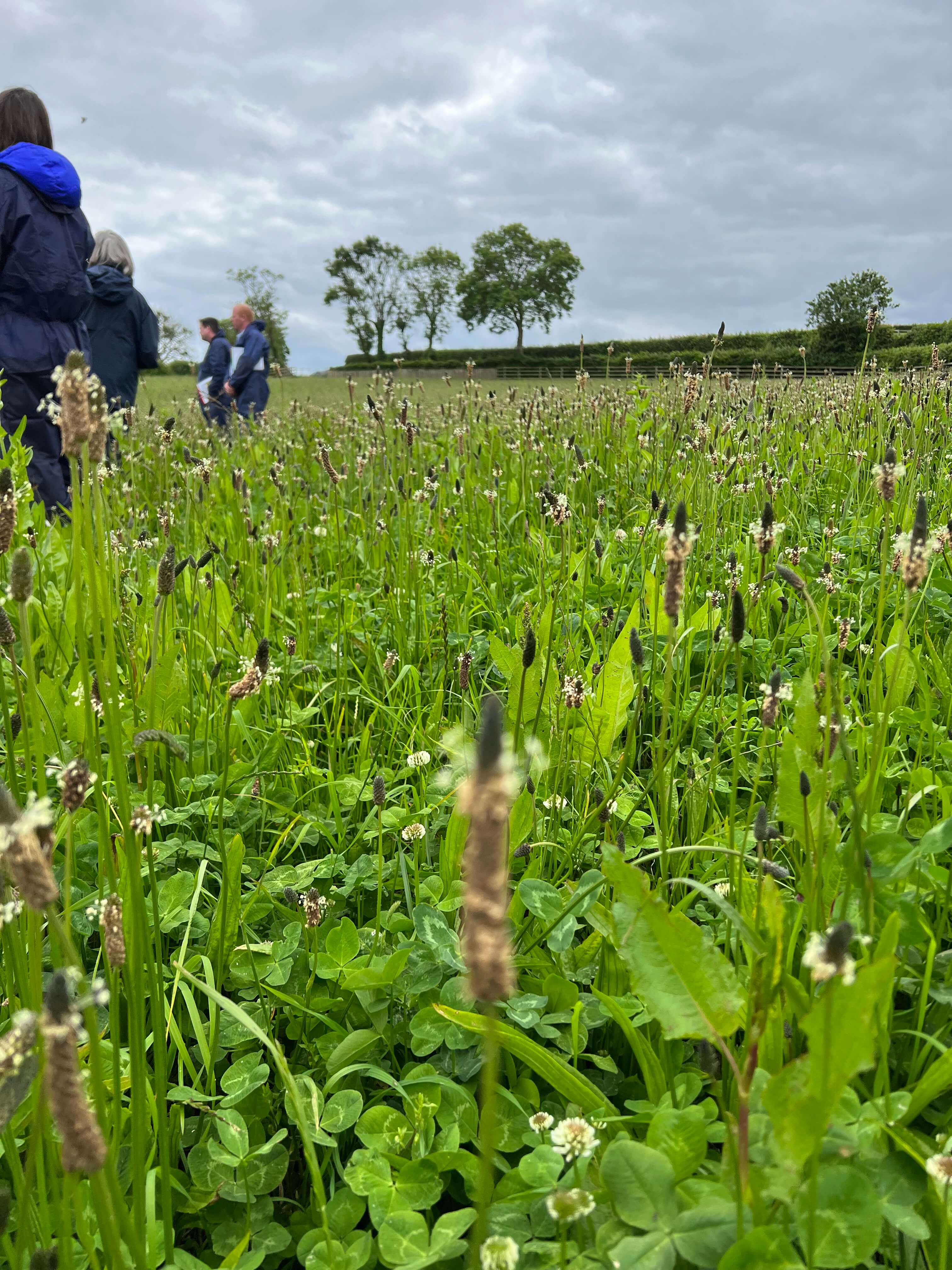
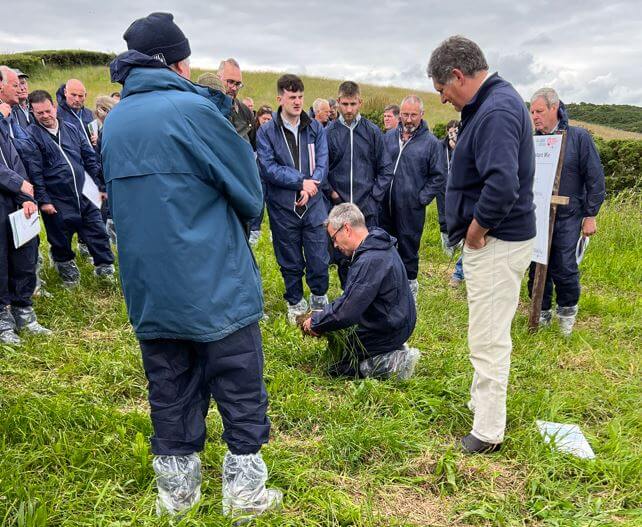
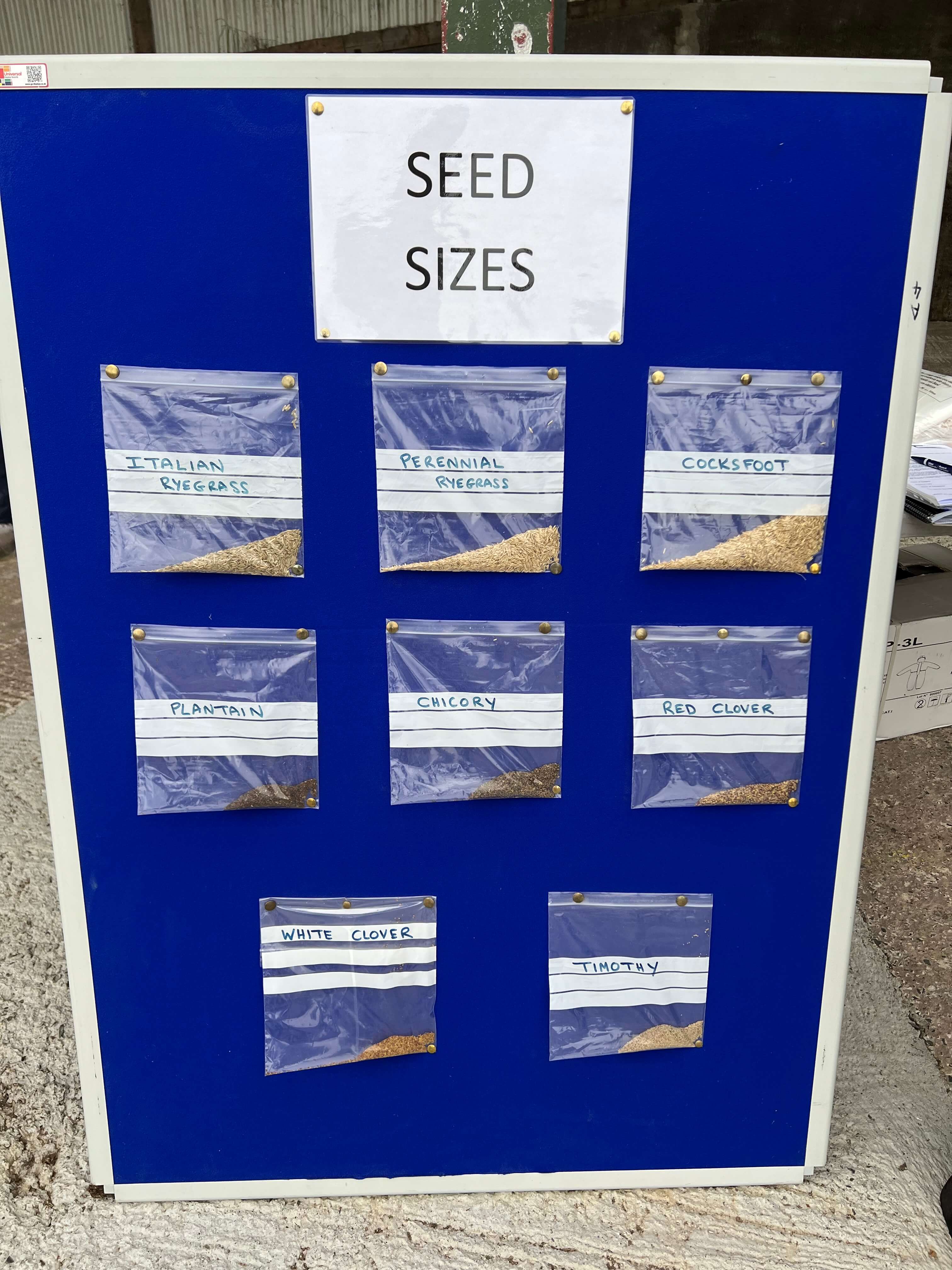
While establishment was a challenging process the swards are now performing very well despite not receiving any artificial N fertiliser. Paul & Frank both emphasised the mindset change that is required to establish and manage multi-species swards (MMS). The mutual support and assistance of the “Multi-Species Swards for Beef & Sheep” European Innovation Partnership (EIP) operational group has been invaluable. The group is led by AgriSearch, and involves six beef & sheep farmers from across Northern Ireland. Scientific support is provided by AFBI and Queen’s University.
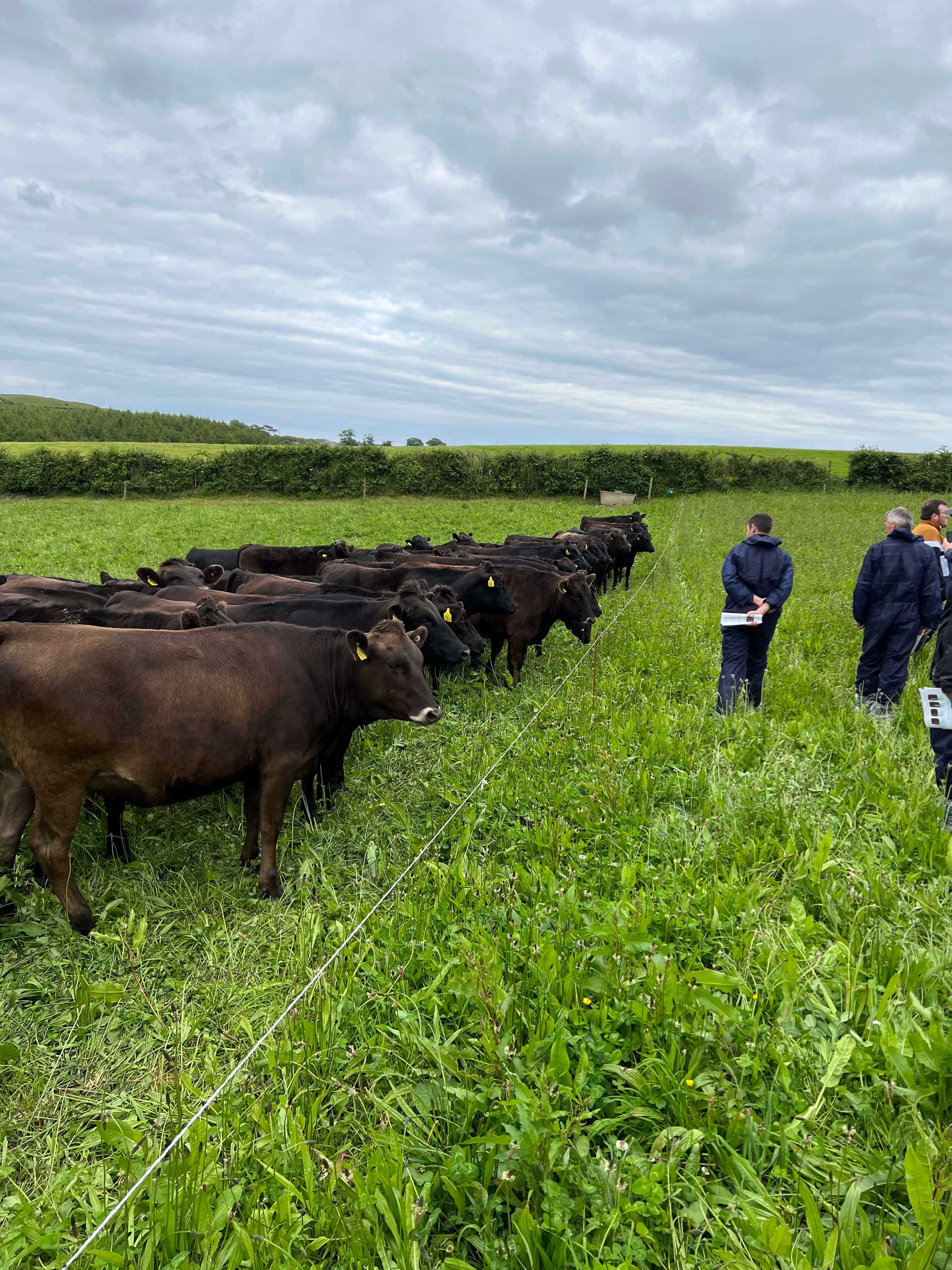
AgriSearch acknowledged that farmers are facing many challenges including the rising cost of fertilisers, anthelmintic resistance, and extremes of weather, as well as demands to reduce their carbon footprint and improve biodiversity. Research results from other parts of the British Isles and further afield have indicated that multi-species swards present an opportunity to address many of these challenges through reduced need for artificial fertilisers, resilience to weather extremes (particularly drought), improve soil quality and carbon sequestration, reduce need for anthelmintics and enhanced biodiversity above and below the ground.
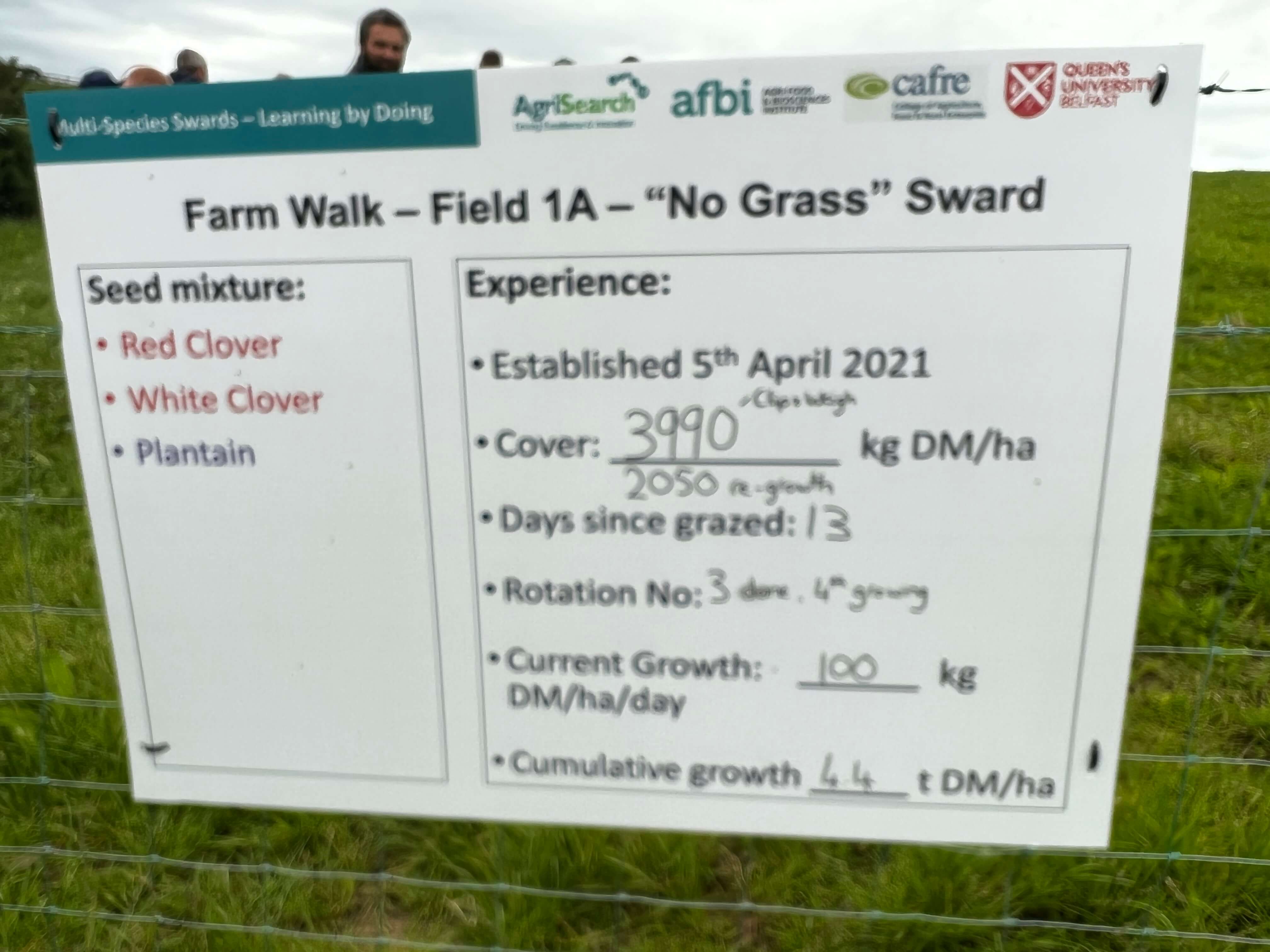
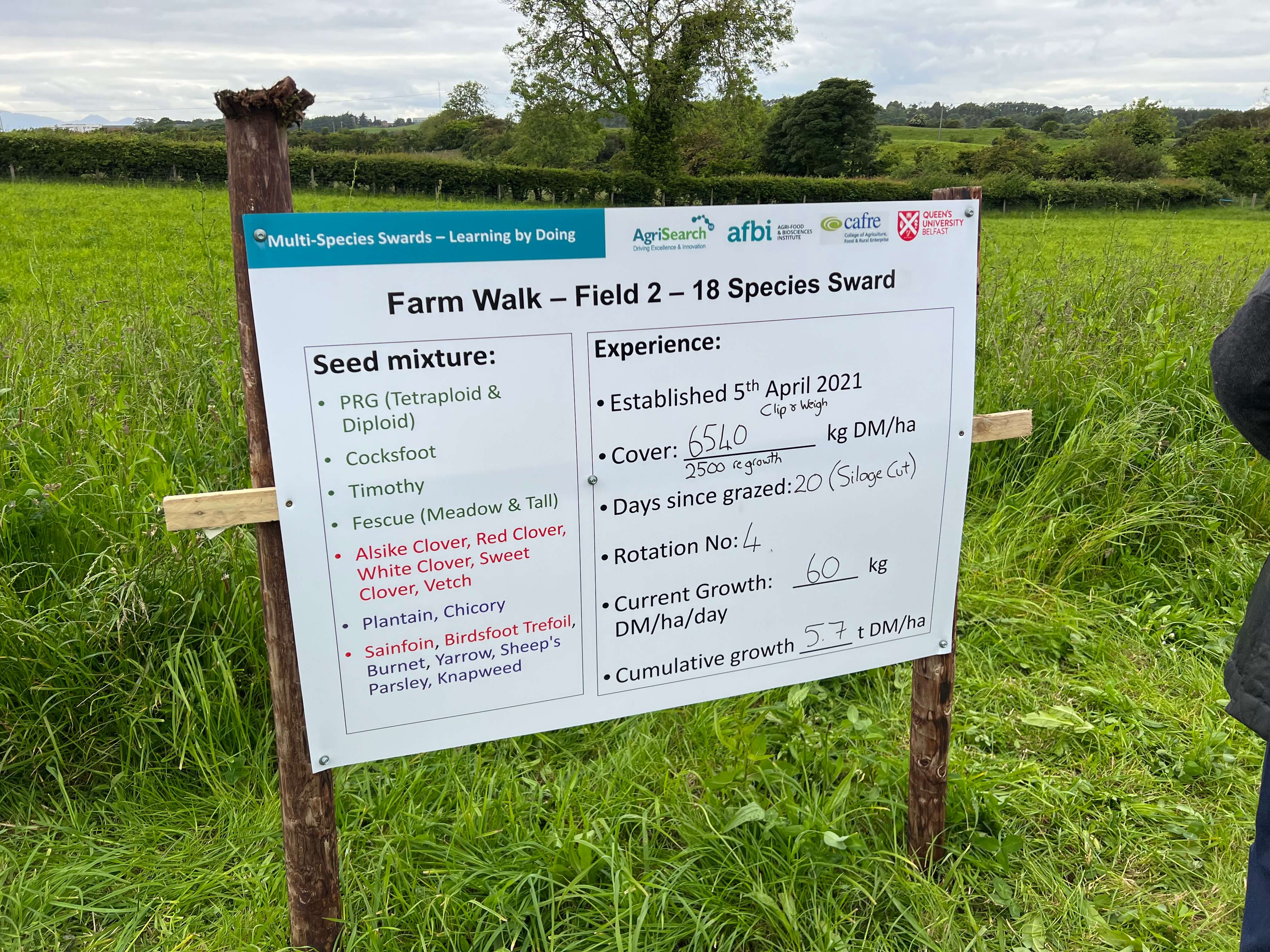
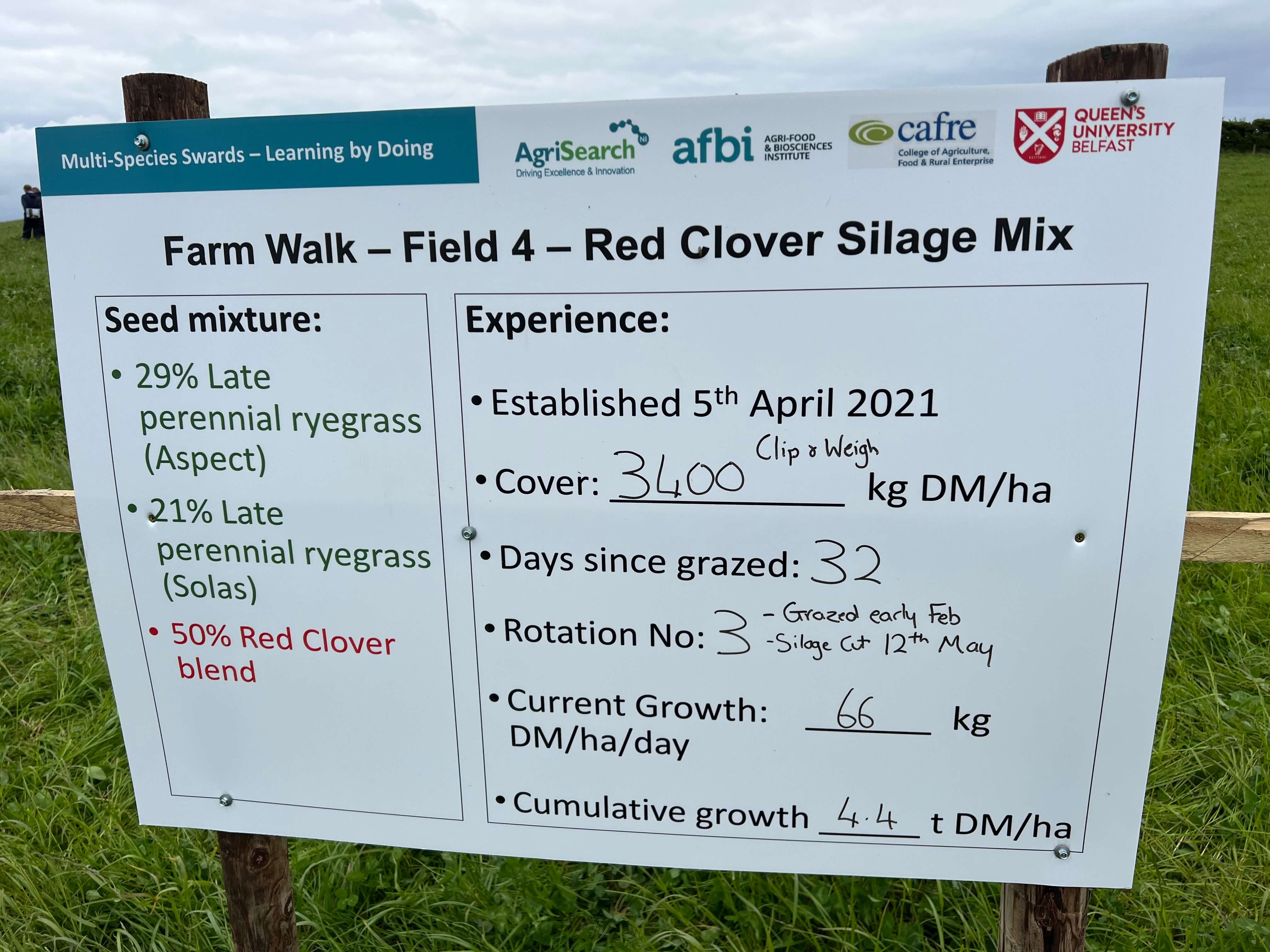
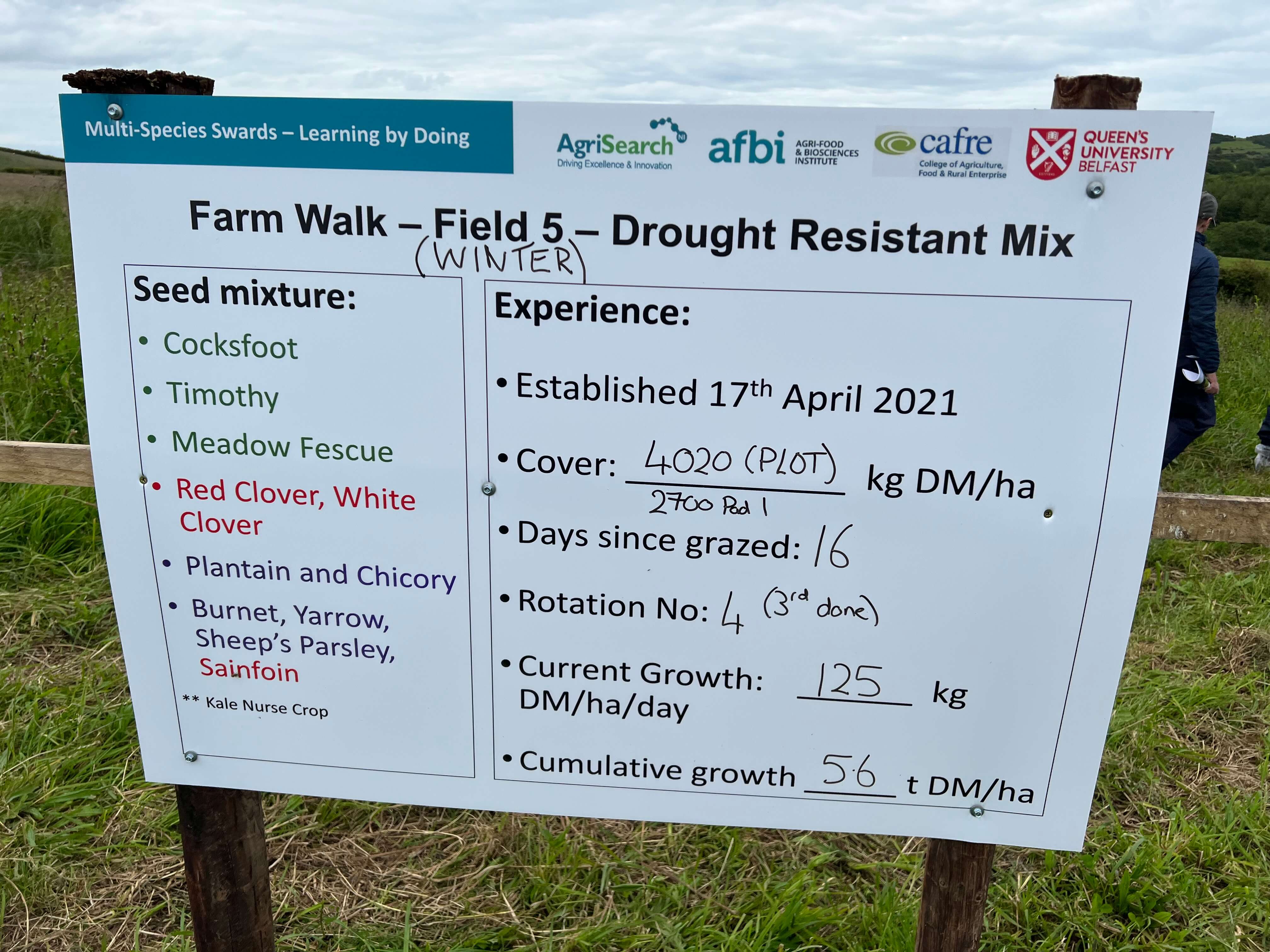
Establishment - field selection
► With MSS there is very limited use of herbicides so select fields that do not have a heavy burden of weeds.
► Fields with a good grass content can be overseeded with a clover/herbs only mixture
► The basic field requirements are broadly similar to those for grass/clover swards:
%20required%20Correct%20soil%20index%20for%20P%20%26%20K%20requried%20(Index%202%2B%20or%20above)%20Avoid%20heavy%2C%20poorly%20drained%20fields%20(1).png)
Engaging the services of a professional like Biome Connect to test the soil or taking the soil sample yourself with a soil sampler to identify what you are working with is a good starting point.
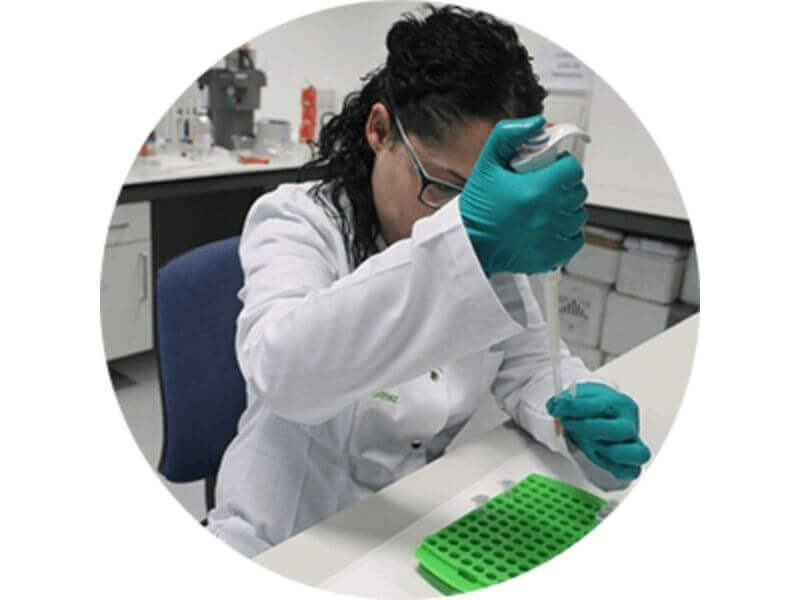
.jpg)
► Soils can be improved through lime, farm yard manure, P&K fertiliser (avoid high N compound fertiliser).
Example:
Index 2: 50kg Phosphate/ha and 40-60kg Potash/ha with a later application of N 25kgN/ha only if required. Seed bed N may only encourage weeds and boost existing grass sward when overseeding
.png)
The SpreadPoint SP range of lime spreaders is the most robust and physically capable purpose-built lime spreaders on the market. View the range here
Establishment - Seed Bed Preparation
► A firm, well consolidated, fine seed bed is essential. Using a Walter Watson land roller would be ideal. View the range here
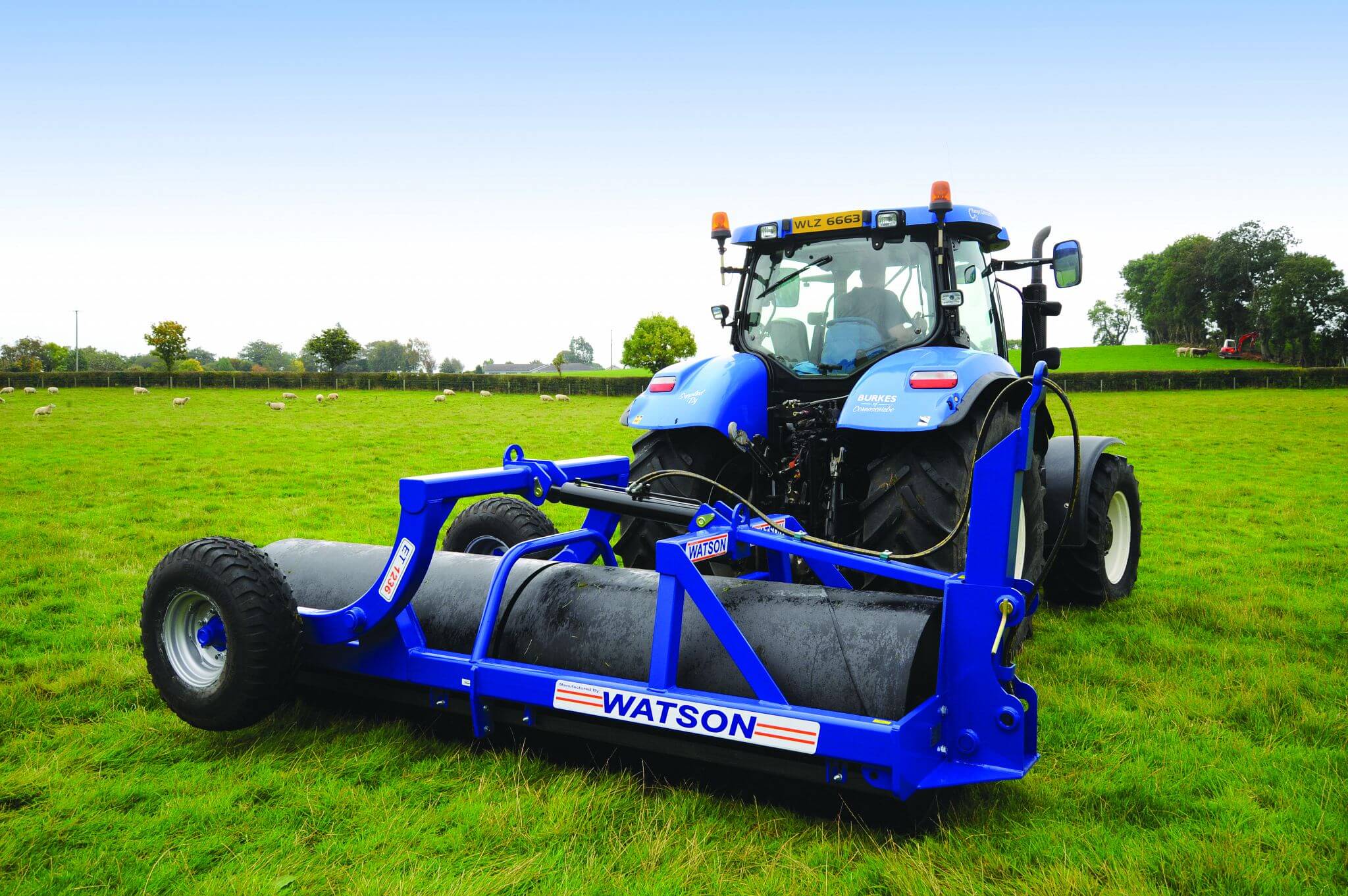
► When using min-till methods, create some bare earth at the surface and reduce the competition from existing grass sward by repeated passes with spring tine harrows.
Erth Engineering Agriseeder offers a flexible drill perfect for sowing clover, grass, fodder crops, cover crops, set aside mixes and cereals; into existing swards or burn off. View the range here
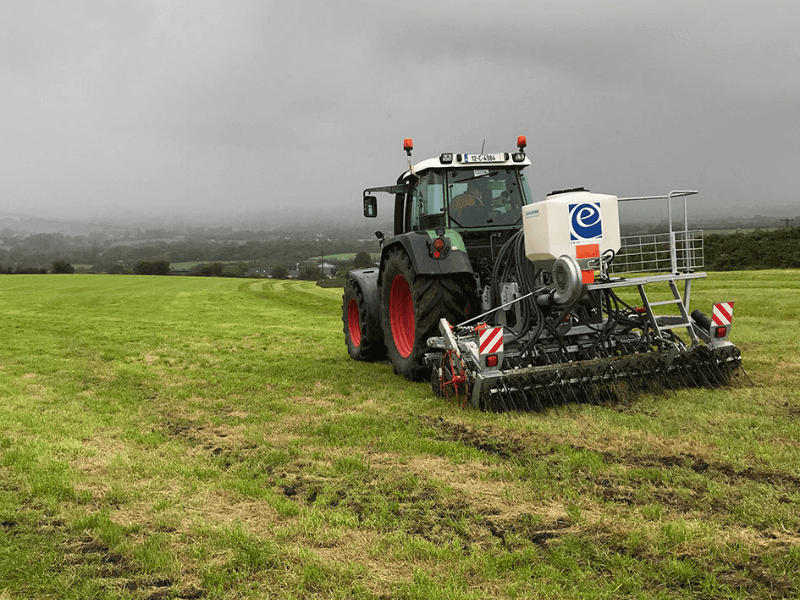
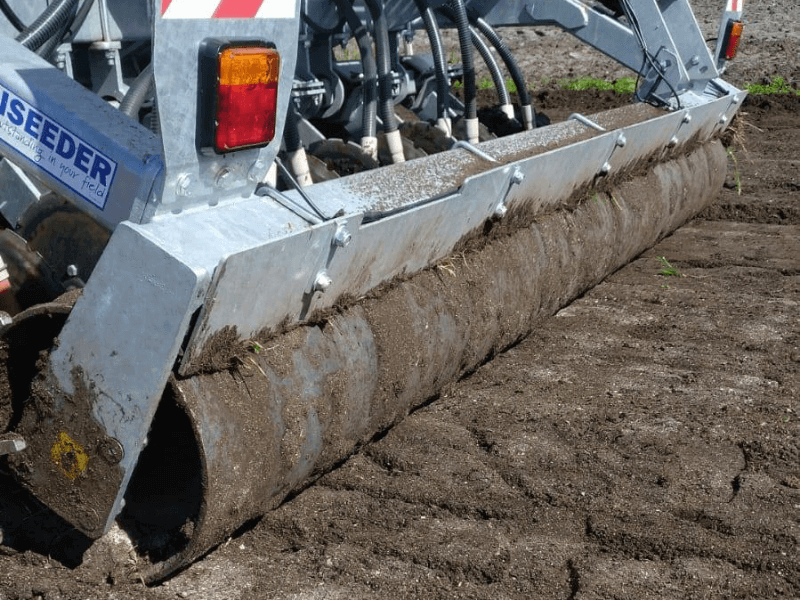
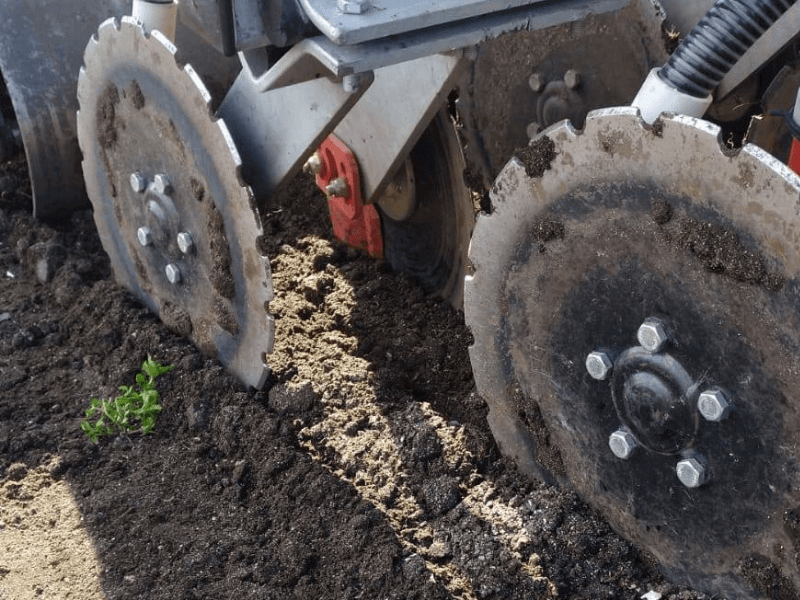
► To Minimise any trash residue at or near the soil surface:
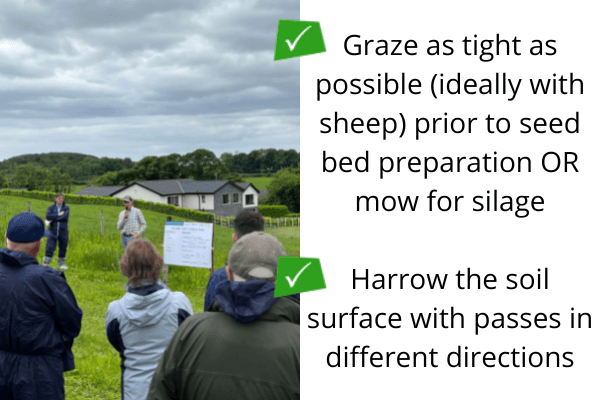
► The depth of the seed bed is very important. If seeds are placed too deep, the seedlings will never emerge. Clover, Timothy, chicory & plantain are all very small seeds therefore aim to place seeds no deeper than 10mm.
Post - Sowing
► After sowing the seed bed may need to be rolled twice, once in either direction.
► Seed: Soil Contact and soil moisture are vital for successful germination. If surface is very dry and no rain is forecast, wait for the correct weather window.
Weed Control
► It is essential to control any broad-leaved weeds such as docks, thistles pre-sowing, as once the sward is established there are no herb-safe herbicides available to control doc, chickweed etc.
► After ploughing the 'stale seed bed' method can be used to 'exhaust' the population of weed and grass seeds near the soil surface.
► Sowing in April or in July-August is recommended, as germination and growth is limited when soil temperatures drop below 10°C in late summer.
► Slug pellets can be used to enhance establishment if required.
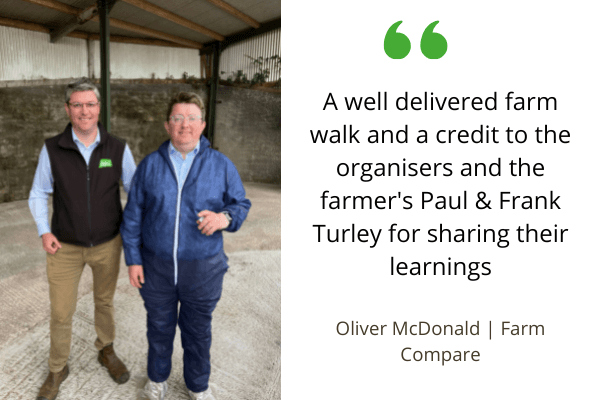
Key takeaways are:
Multi-Species Swards have the potential to:
► Reduce fertiliser use
► Improve soil health and biodiversity
► Reduce GHG emissions and improve carbon sequestration
► Improve drought resilience
► Maintain/enhance animal performance
► Reduce anthelmintic use
BUT
► More challenging to establish and manage
► Weed Control and persistence of herbs can be an issue
► Need to be vigilant for bloat
► Better to establish a reasonable area to avoid animal switching sward types
Notes: Acknowledgements
AgriSearch, EIP Group Members & Hosts: Paul & Frank Turley, CAFRE, SUPER-G Project, DAERA & EAFRD funders of the project.
© 2025 Farm Compare Ltd. All rights reserved| T&Cs | Privacy policy | Website by Reflex Studios

This website was developed with support from Priority 6 (LEADER) of the Northern Ireland Rural Development Programme 2014-2020 by the Department of Agriculture, Environment and Rural Affairs and the European Agricultural Fund for Rural Development: Europe investing in rural areas

